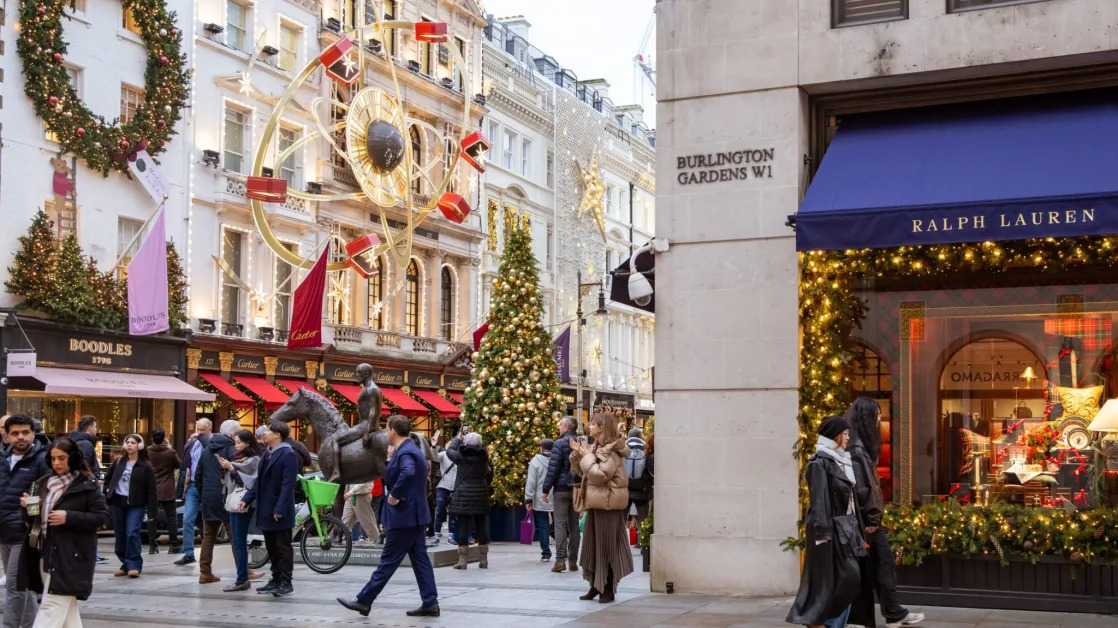Luxury marketplaces such as Farfetch are joining forces with brands to offer crypto payments. Farfetch has green-lit crypto payments in 37 countries, and its CEO José Neves said that luxury companies need to be 'where the luxury customer is today and where they’ll be tomorrow'.
Companies such as S.T. Dupont, Printemps, Gucci, LVMH-owned Tag Heuer, and Burberry are starting to accept crypto payments. They are doing this to reach a younger clientele who have made fortunes trading the digital currency and to offer more flexibility to their customers.
The price of Bitcoin has crossed the 100,000 mark and is on an upward trajectory to 110,000 in anticipation of pro-crypto policies. This has piqued the interest of luxury brands, who are now looking to offer crypto as a form of payment.
The demographic driving the adoption of crypto payments in the luxury market is primarily younger, with crypto holdings in Europe skewed towards Gen Z and Millennials.
Offering crypto payments could unlock a whole new clientele of young people who have made fortunes trading the digital currency, and could also help luxury firms to be seen as more modern and flexible, rather than 'stuffy old brands that's only selling to the boomers'.
Bitcoin has been on a dream run since Donald Trump was elected the next U.S. president, driving the cryptocurrency to record highs day after day. The big rally has piqued the interest of luxury brands, who are now looking to offer crypto as a form of payment.
The price of Bitcoin crossed the $100,000 mark earlier this month and is on an upward trajectory to $110,000 in anticipation of Trump’s pro-crypto policies.
Niche luxury companies, such as French pen-maker S.T. Dupont, are moving fast to offer crypto payments in two of its Paris stores before the holidays, Reuters reported . Printemps, a French department store, will soon accept the digital currency as payment.
The head of Binance France, the French unit of the world’s largest crypto exchange, acknowledged that there was more interest overall, including from luxury players.
"We're delighted to see the luxury sector embracing cryptocurrency payments, as demonstrated by our recent partnership with Printemps in France,” a Binance spokesperson told Fortune . “This initiative has generated significant interest, and we're already in talks with other luxury brands eager to integrate cryptocurrency payments.”
Binance has joined hands with Groupe LG, an automotive dealership, to help customers buy branded and vintage vehicles via cryptocurrency.
This points to a growing acceptance of the digital asset as a mode of payment despite skeptics and regulators pushing back on it.
“While we cannot comment on specific companies or sectors choosing to engage with crypto as a payment option, we are gratified by the increasing adoption of cryptocurrency across diverse industries,” a Coinbase spokesperson told Fortune .
Past rallies have rushed luxury majors to allow cryptocurrency payments. For instance, Gucci, LVMH-owned Tag Heuer, and Burberry have offered crypto payments since 2022, following a surge in the asset’s value through 2021 . It was around then that Bitcoin, Ethereum, and non-fungible tokens (NFTs) started to become more mainstream, with Tesla buying the digital currency and El Salvador making it legal tender.
When Kering-owned Gucci and Balenciaga announced two years ago that they would accept crypto payments, it was clear that high-end brands wanted to reach customers through an increasingly lucrative avenue. Gucci stores, for instance, offered a simple QR code scan-and-pay option in New York, Los Angeles, and other high-profile locations.
More the merrier
As select brands adopted crypto payments, luxury marketplaces also joined forces. Farfetch, an e-commerce platform that sells products from 1,400 brands, green-lit crypto payments in 37 countries just as the top-end brands began jumping on the crypto ship.
Ultimately, luxury companies need to be “where the luxury customer is today and where they’ll be tomorrow,” Farfetch’s CEO José Neves told the Wall Street Journal in 2022.
Ferrari launched crypto payments on its ultra-luxury cars last year in response to demand from dealers and buyers who were also crypto investors . That also included several young businesspersons who had extensive crypto holdings.
In July, the Italian company extended the option to Europe following success in the U.S. When a customer pays with crypto, it “will be converted immediately into traditional currency,” Ferrari said in a statement earlier this year.
Ferrari’s case illustrates another reason why crypto payments could unlock more than just ease of payment: it could open up a whole new clientele of those who’ve made fortunes trading the digital currency.
Crypto holdings in Europe are primarily skewed towards a younger demographic of Gen Z and Millennials. Due to macroeconomic volatility following the COVID-19 pandemic, high-end brands are still trying to lure back shoppers beyond the so-called Silver Spenders or older individuals who have accumulated wealth over time.
As Andrew O’Neill, the digital assets lead at S&P Global, said, crypto payments could help a luxury firm be more than “a stuffy old brand that's only selling to the boomers.”
Even if the option is only meant to offer more flexibility rather than for luxury retailers to up their crypto stakes, it’s still valuable. Given that parts of Asia, particularly China, have struggled with poor economic recovery, the digital currency might offer an added incentive to attract them.
Update, December 18, 2024: This article has been updated with a comment from Binance.


